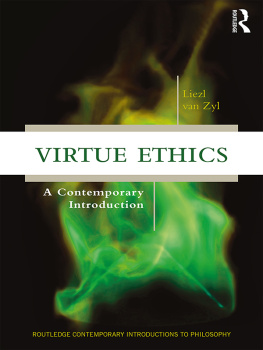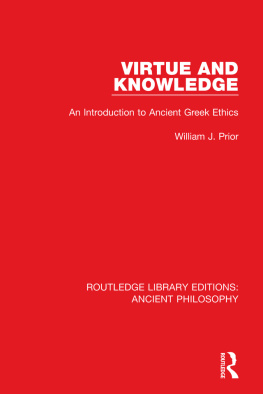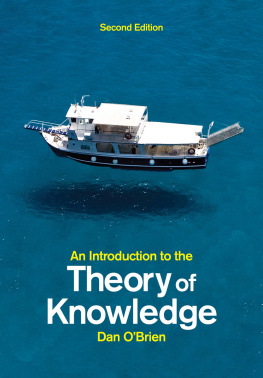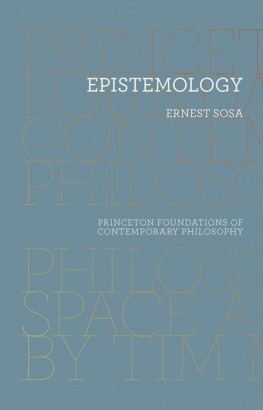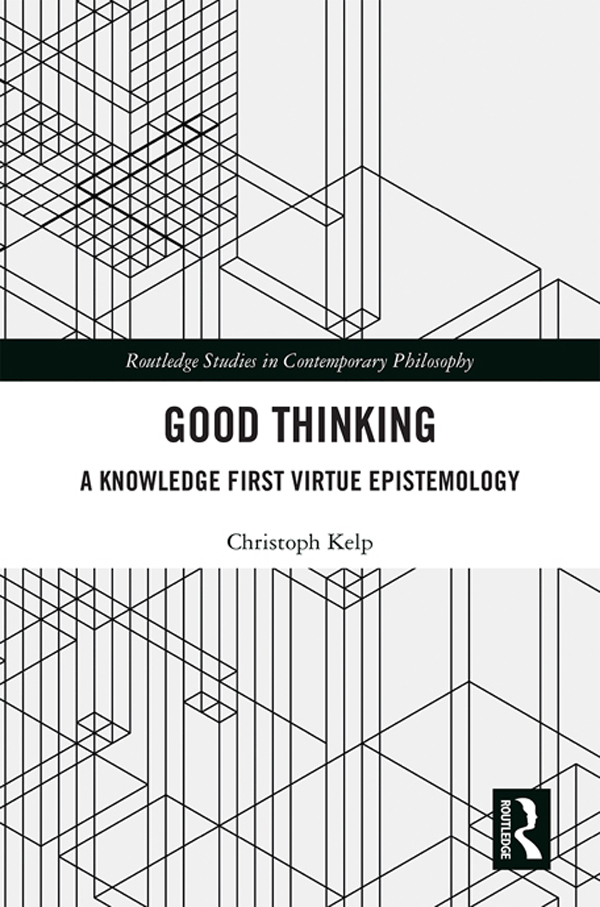
Contents
Good Thinking
This book combines virtue reliabilism with knowledge first epistemology to develop novel accounts of knowledge and justified belief. It is virtue reliabilist in that knowledge and justified belief are accounted for in terms of epistemic ability. It is knowledge first epistemological in that, unlike traditional virtue reliabilism, it does not unpack the notion of epistemic ability as an ability to form true beliefs but as an ability to know, thus offering a definition of justified belief in terms of knowledge. In addition, the book aims to show that this version of knowledge first virtue reliabilism serves to provide novel solutions to a number of core epistemological problems and, as a result, compares favourably with alternative versions of virtue reliabilism both in the traditionalist and in the knowledge first camp. This is the first ever book-length development of knowledge first virtue reliabilism, and it will contribute to recent debates in these two growing areas of epistemology.
Christoph Kelp is a Lecturer in Philosophy at the University of Glasgow, UK. His work in epistemology has been published in Philosophy and Phenomenological Research, Nos, Synthese and the Journal of Philosophy. He is the winner of the 2017 Young Epistemologist Prize.
Routledge Studies in Contemporary Philosophy
106 New Directions in the Philosophy of Memory
Edited by Kourken Michaelian, Dorothea Debus, and Denis Perrin
107 A Pragmatic Approach to Libertarian Free Will
John Lemos
108 Consciousness and Physicalism
A Defense of a Research Program
Andreas Elpidorou and Guy Dove
109 The Value and Limits of Academic Speech
Philosophical, Political, and Legal Perspectives
Edited by Donald Alexander Downs and Chris W. Surprenant
110 The Significance of Interdeterminacy
Perspectives from Asian and Continental Philosophy
Edited by Robert H. Scott and Gregory S. Moss
111 Questions of Practice in Philosophy and Social Theory
Edited by Anders Buch and Theodore R. Schatzki
112 The Phenomenology of Real and Virtual Places
Edited by Erik Malcolm Champion
113 Context, Truth, and Objectivity
Essays on Radical Contextualism
Edited by Eduardo Marchesan and David Zapero
114 Good Thinking
A Knowledge First Virtue Epistemology
Christoph Kelp
For a full list of titles in this series, please visit www.routledge.com.
Good Thinking
A Knowledge First Virtue Epistemology
Christoph Kelp

First published 2019
by Routledge
711 Third Avenue, New York, NY 10017
and by Routledge
2 Park Square, Milton Park, Abingdon, Oxon OX14 4RN
Routledge is an imprint of the Taylor & Francis Group, an informa business
2019 Taylor & Francis
The right of Christoph Kelp to be identified as author of this work has been asserted by him in accordance with sections 77 and 78 of the Copyright, Designs and Patents Act 1988.
All rights reserved. No part of this book may be reprinted or reproduced or utilised in any form or by any electronic, mechanical, or other means, now known or hereafter invented, including photocopying and recording, or in any information storage or retrieval system, without permission in writing from the publishers.
Trademark notice: Product or corporate names may be trademarks or registered trademarks, and are used only for identification and explanation without intent to infringe.
Library of Congress Cataloging-in-Publication Data
Names: Kelp, Christoph, author.
Title: Good thinking: a knowledge first virtue epistemology /
by Christoph Kelp.
Description: 1 [edition]. | New York: Taylor & Francis, 2018. |
Series: Routledge studies in contemporary philosophy; 114 |
Includes
bibliographical references and index.
Identifiers: LCCN 2018031821
Subjects: LCSH: Virtue epistemology. | Knowledge, Theory of.
Classification: LCC BD176 .K45 2018 | DDC 121dc23
LC record available at https://lccn.loc.gov/2018031821
ISBN: 978-1-138-31769-7 (hbk)
ISBN: 978-0-429-45506-3 (ebk)
Typeset in Sabon
by codeMantra
To my parents
I have been attracted to the virtue reliabilist account of knowledge according to which knowledge is an achievement, a success because of competenceever since I first came into contact with them during my PhD. While I thought the view carries a considerable amount of promise, I was struck by the fact that it seemed to struggle with fake barn cases and wasnt satisfied with extant attempt to solve it. All of them took for granted that the success at issue in knowledge is truth and ventured to fiddle either with the competence condition or with the because relation in order to get these cases right. At some point in the late 2000s, it occurred to me that the right way to go might just be to abandon truth as the relevant success and go for something stronger. My first attempt at this was in a paper entitled In defence of virtue epistemology which argues that, at least for perceptual knowledge, the success at issue in knowledge is discrimination. However, I ultimately remained unsatisfied with the proposal mainly because it didnt seem to generalise beyond perceptual knowledge in the right way. I then toyed with the idea that the success might be safety instead but also abandoned the idea pretty quickly. This was in part because it had its own difficulties but mostly because I found the idea of exploring a knowledge first version of virtue reliabilism very attractive. I started thinking about this in the early 10s and first presented a paper that developed this kind of view in Bologna in 2012. A year later, I was awarded two generous research grants for a project on the issue which helped tremendously in giving me the opportunity to work out the view in more detail. Even so, it took what appeared to me to be a long time and an entire series of lengthy and sometimes frustrating reviewing processes before the first paper on the topic actually appeared in print in 2016. But by then the spell appeared to have been broken and a number of pieces appeared in fairly quick succession. While the material from these papers provides the backbone of this book, I also draw on earlier work at various junctures. More specifically, draw on material from Justified belief: knowledge first-style, Philosophy and Phenomenological Research 93: 79100 (2016), Knowledge first virtue epistemology, in Carter, A., Gordon, E. and Jarvis, B., editors. Knowledge First. Approaches to Epistemology and Mind, Oxford: OUP (2017), Lotteries and justification, Synthese 195: 123344 (2017), and, to a lesser extent, on Two for the knowledge goal of inquiry American Philosophical Quarterly 51: 22732 (2014) and Unreflective epistemology Episteme 11: 41122. (Note, however, that there is no one-toone correspondence between the contents of book chapters and papers. Sometimes chapters expand on papers or develop relevant ideas further. At the same time, in some cases, papers go beyond what is covered by the book.) Furthermore, Appendix The Safety Dilemma is based on Epistemic Frankfurt cases revisited,
Next page


